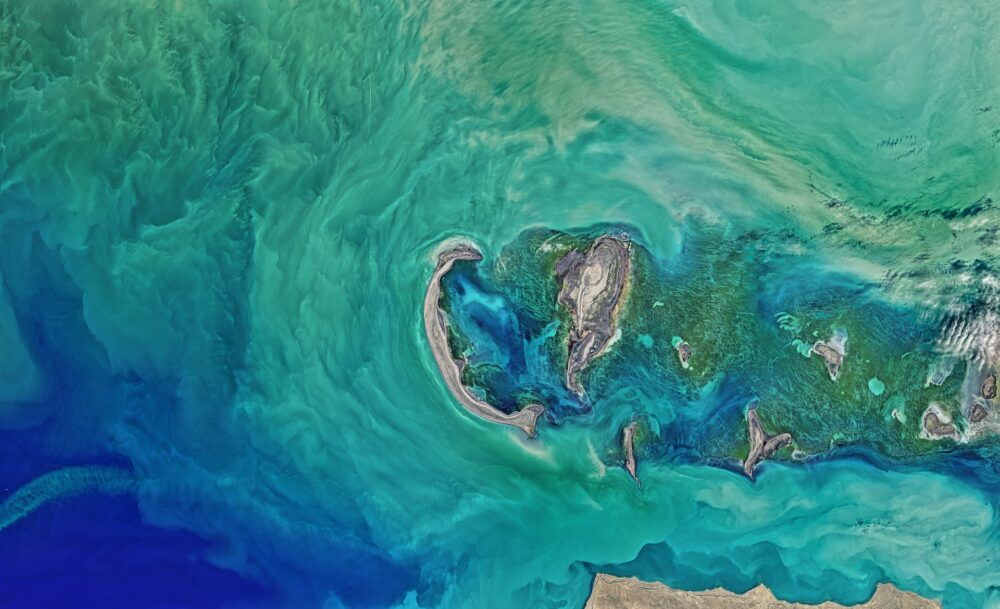Leading Intelligence Provider Says Kazakh Government Must Do More To Address Receding Waters Of Caspian Sea

KCS GROUP EUROPE SAYS LACK OF SNOWFALL, CLIMATE CHANGE, HYDROELECTRIC POWER LEADING TO SCARCITY OF FRESH WATER
Written by Stuart Poole-Robb, CEO of KCS Group Europe
The health of the rivers in Kazakhstan and the receding waters of the Caspian Sea are attracting the attention of environmental experts worldwide. A lack of snowfall, increased water consumption and a Russian hydroelectric power station are just some of the factors contributing to the problems faced by Kazakhstan’s rivers. In many other parts of the world, rising sea levels are the number one environmental issue – but, for Kazakhstan, the problem is falling sea levels and an extreme scarcity of fresh water. Wherever they strike, the impacts of climate change display a range of terrifying realities.
The rapid decline in water levels in the Caspian Sea along Kazakhstan’s coastline is of particular concern and has prompted the Kazakh government to declare a state of emergency. This has come as a surprise, especially since the Ecology Ministry has failed to acknowledge the issue in the past. In June 2021, they attributed the decline in water levels to natural fluctuations, citing historical evidence of sea levels having dropped by three metres before returning to normal again. Since 2005, the Caspian Sea has significantly retreated from Kazakhstan’s coastline with water levels having reportedly dropped by approximately 1.5 metres. This decline poses significant risks to coastal ecosystems, wetlands and marine habitats. The reduction in water availability can disrupt breeding grounds and migration patterns, threatening a variety of different living organisms. The crisis is further hampered by temperature increases and the lack of snow thought to be the result of climate change. All these factors contribute to lowering water resources within the region.
The need for national and regional co-operation
Kazakhstan now has to draw national and regional attention to water usage, sensible rationing, sustainable irrigation and cross-border co-operation. Efforts must be made to restore river ecosystems and seek out new sources of water supply to decrease reliance on the diminishing Caspian Sea. Strategies must be formed that acknowledge the effects of the changing climate and integrate those changes into long-term plans for sustainable water systems. Kazakhstan’s neighbours have acknowledged the issue, but they are slow to act. International assistance will also be vital in order for any credible solutions to be realised.
In the longer term
Scientists predict that by 2040, the country could face substantial shortfalls in its water resources – amounting to around 50 percent of its needs. Natural climate changing conditions, irresponsible irrigation usage and newly formed run-offs into bordering countries are exacerbating the situation. This water shortage has grave consequences that will impact the economy, leading to reduction in water per capita availability. The threat of worsening shortages deepens existing concerns over river shoaling and lowering water levels in the Ural, Ili, Irtysh and Yesil rivers.
The issue is further complicated by Kazakhstan’s historical relationship with the Soviet Union and Russia. The area of Semipalatinsk, having previously functioned as a nuclear test site, is still radioactively contaminated. Aside from the health risks and increased disease rates near the test site, the Aral Sea has also been shrinking due to intense drawdowns from tributary rivers as a result of Soviet irrigation and hydroelectric practices. The results of this activity have been catastrophic. The depleted water surface of the Aral Sea has led to regional climatic extremes, corrupted agricultural soil and salt deposits, and increasing desertification.
Desertification is a widespread issue and Kazakhstan is seeing agricultural land being destroyed en masse. The governance in place is inadequate for controlling the irresponsible use of effluents released in the air and water and this has had a profound effect on local biodiversity. Soviet-era weapons testing still blights the north-eastern region of Semey due to long-term radiation contamination.
In order to tackle the challenges that lie ahead, concerted efforts are required. The region is now pressed to implement realistic, sustainable resource management practices, pollution control measures, and co-operation with neighbouring countries to solve environmental concerns. Everyone in the region – from governments to businesses to communities – must unite to protect the future of their people and environments.
KCS Group Europe is a strategic intelligence and corporate security company, headquartered in London for over three decades. It works with leading legal and financial institutions to provide due diligence all over the world.





